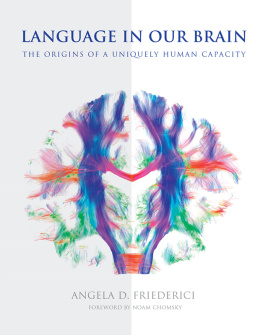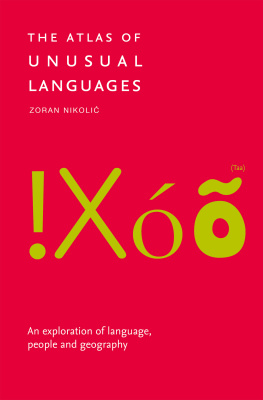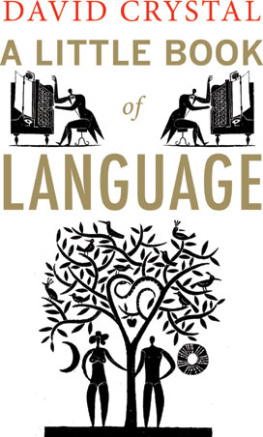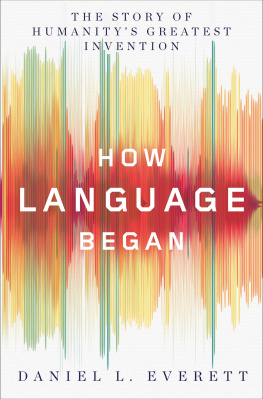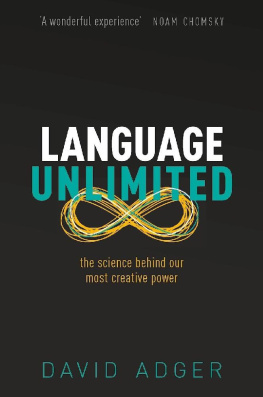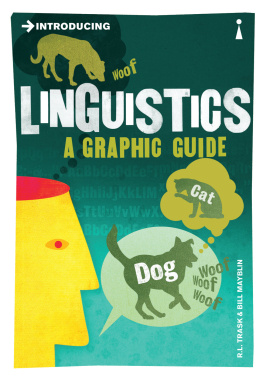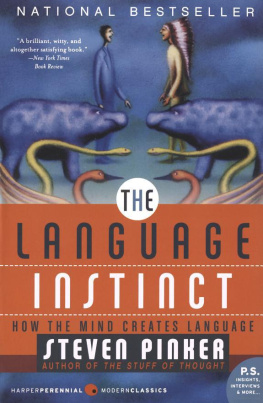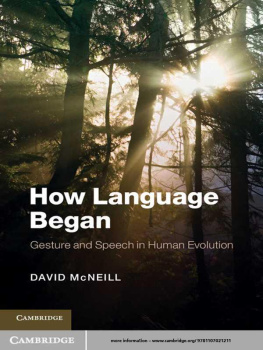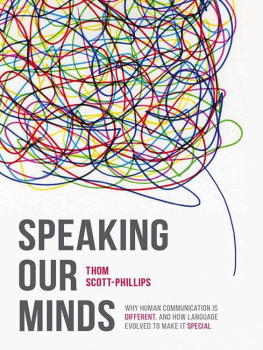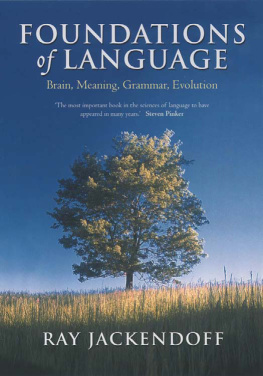Contents
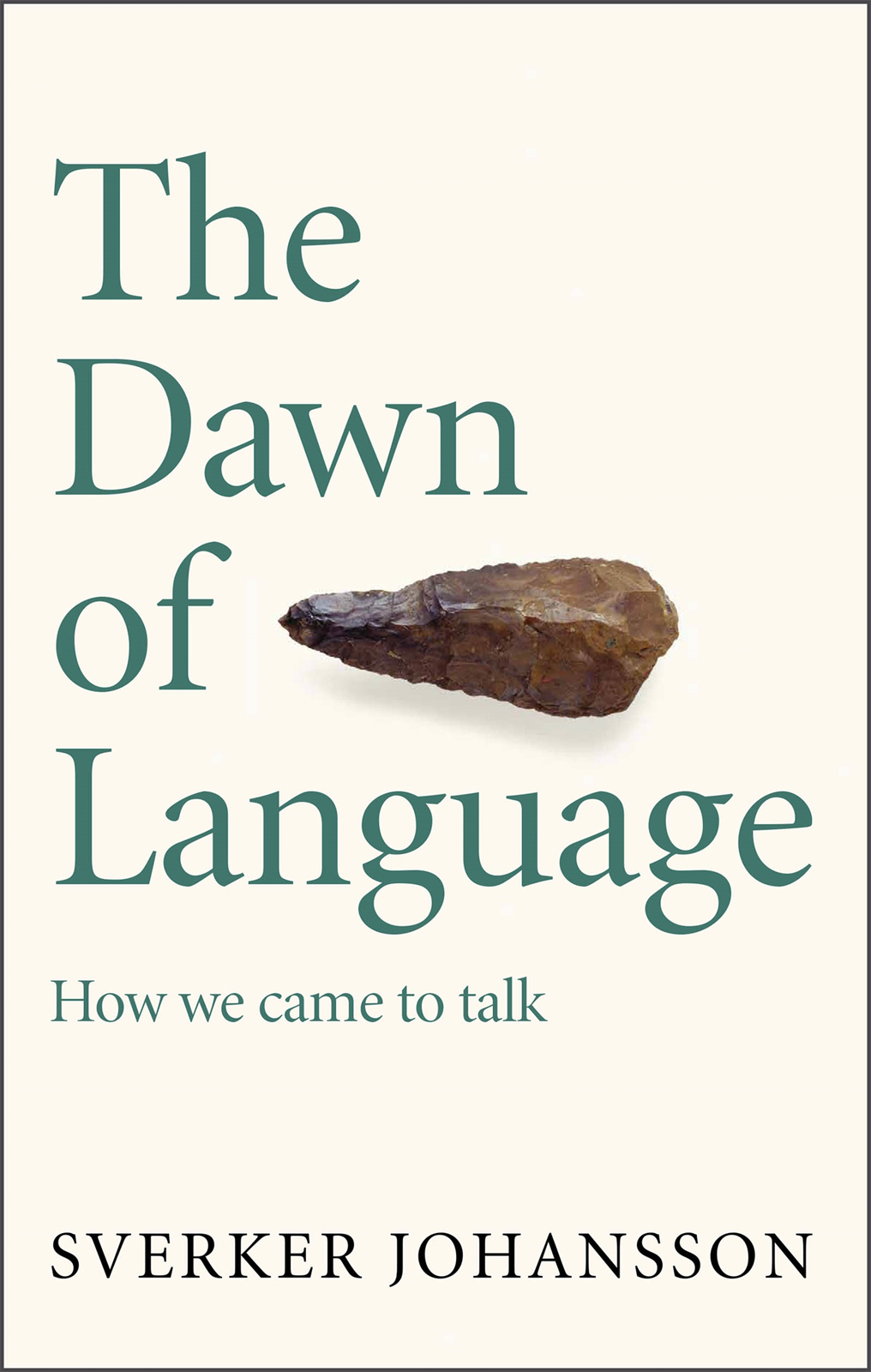
First published as P spaning efter sprkets ursprung by Natur & Kultur, Stockholm, in 2019 First published in Great Britain in 2021 by
MacLehose Press
An imprint of Quercus Publishing Ltd
Carmelite House
50 Victoria Embankment
London EC4Y 0DZ
An Hachette UK company
Copyright 2019 Sverker Johansson and Natur & Kultur, Stockholm
English translation copyright 2021 by Frank Perry
This publication is sponsored by

The moral right of Sverker Johansson to be identified as the author of this work has been asserted in accordance with the Copyright, Designs and Patents Act, 1988.
Frank Perry asserts his moral right to be identified as the translator of the work.
All rights reserved. No part of this publication may be reproduced or transmitted in any form or by any means, electronic or mechanical, including photocopy, recording, or any information storage and retrieval system, without permission in writing from the publisher.
A CIP catalogue record for this book is available from the British Library.
EBOOK ISBN 978 1 52941 142 3
www.maclehosepress.com
Foreword
Dad, why is that thing hanging by its tail?
Its hanging by its tail because thats more convenient when youre climbing trees and picking fruit.
Dad, why is it picking fruit?
Because fruit is what that monkey eats.
Dad, why do you call it a monkey?
Because it is a monkey. We call that kind of animal monkeys.
Dad, why do we call them monkeys?
Because thats what we were taught when we were little: that theyre called monkeys.
Dad, is its name Monkey? She turns to the monkey. Monkey, hello Monkey. No response from the monkey.
Dad, why isnt the monkey answering?
Because it doesnt understand what you are saying.
Dad, why doesnt it understand what Im saying?
Because monkeys cant talk.
Dad, why cant monkeys talk?
Because animals cant talk.
Only, Dad, yesterday you said people are a kind of animal. So how come people can talk?
Thats when Dad gives up. Youd need an entire book to answer that question. Thats the book youve got in your hands right now.
*
Most children go through a period at some point about the age of four when they ask why about everything. They are not satisfied even when they get an answer and each answer just leads on to a new why. Eventually Dad gets tired of answering, and eventually the children get tired of asking because they never get a proper answer. In any case they usually stop asking fairly soon after they start school.
I never got tired. I continued to ask why and am still doing it today, just over fifty years later. A lot of that would have to do with the fact that my father never grew tired of answering and explaining. And I continued to ask him questions from time to time but nowadays I do most of my thinking about things no-one knows the answer to, and not even Dad would have. So I try and find out the answers myself.
The things I speculate about, the questions I ask, have frequently been about origins, about how the world works in the final analysis. I was fairly young when I started reading books about fossils and outer space, and I still have some of my favourite books from when I was five or six. I continued reading about evolution and cosmology and I must have been a fairly unbearable pupil at primary school most of my teachers soon wearied of my questions, and I got bored of asking them. So I read up on the subjects instead.
Eventually this led to a brief first scientific career as a particle physicist. But soon after I finished my doctorate in 1990 on the production of lepton pairs in proton collisions in a particle accelerator in Switzerland, I discovered something that was more exciting than physics: language. Although I had not thought very much about language until that point, I decided to take an evening course in general linguistics, mostly for fun. It was on that course that I discovered how exciting the study of language could be and how many unanswered questions remained about how language worked. It was the origin of language, above all, that was still shrouded in darkness. This would eventually lead me to completely alter the course of my research work and resulted in this book.
Today we know a great deal more about the origin of language than we did then, even if many pieces of the puzzle are still missing. I hope in this book to be able to show the reader both how fascinating language is and how much detective work goes into finding all the pieces of that puzzle. While the pieces that frame the puzzle emerge, we will also get some idea of how many other pieces we have yet to put in place.
Introduction
What is it that makes us human beings? We like to think of ourselves as special, unique, unlike all the other animals. Even referring to us as animals can still cause offence to some people, but I am going to be doing that in this book if only because anything else would be absurd in biological terms. We are nevertheless extremely unusual animals, not least because of our extraordinary success and the impact we have had on our planet.
What, then, is the key to our success? What is it that makes us special? Over the years, scientists and philosophers have proposed long lists of the supposedly unique qualities of the human being, both in terms of the body and the soul. Possessing a soul is the kind of quality that is assumed to be uniquely human if we do possess a soul, that is, and if other animals do not: two questions to which there are no clear answers.
Although we are a bit on the odd side when it comes to our bodies, we are not really radically different from the other apes. That did not stop thinkers in previous ages from attempting to discover bodily parts that are unique to us, although no idea of this kind has ever survived a more rigorous examination. So no, what may be unique to us is not located in the body.
Morality, courage, consciousness, intelligence, feelings, personality, empathy, love and piety are some of the mental qualities that have been considered uniquely human. None of them have ever really measured up. In order to maintain that something is uniquely human, we have first to be able to show that the quality is unambiguously present in humans and, second, that it is just as unambiguously absent in other animals. But these qualities are difficult to define and hard to measure in people, let alone in animals. There is still no definitive consensus among scientists about a concept as relatively robust as intelligence. Not to mention how we would be able to define and measure and thus be able to exclude courage in a blue whale or morality in a shrew.
All the same, it is hard for us not to feel that there is something in our heads that is different to the other animals, that our brains are in some way better equipped. But that is a feeling we should be suspicious of. We are very quick to use ourselves as measuring sticks and to consider ourselves the norm, and this can lead us to see anything different as inferior.
It is not just other animals we look down on. As soon as one group of humans meets another, they regard each other as lesser beings. Us against The Others is a particularly gratifying trope our minds are always far too ready to remind us of, as they have been doing from time immemorial. Two thousand years ago the Romans considered the Germanic barbarians to be beneath them, while the Germanic tribes no doubt considered the feeble Romans to be second-rate... and this is by no means the earliest example. Neandertals and early


